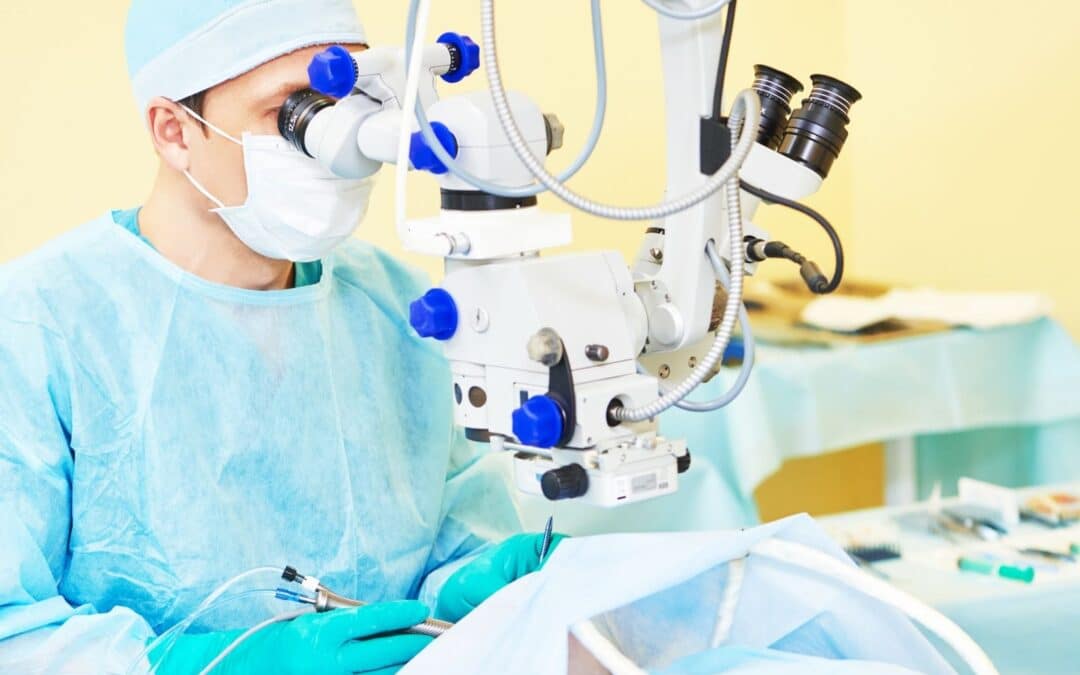LASIK (Laser-Assisted In Situ Keratomileusis) surgery is a popular corrective procedure for vision problems. While generally safe, LASIK carries risks, including eye infections and injuries. In Chicago, medical malpractice cases related to LASIK complications have highlighted hospital and clinic liability. Patients should understand potential risks before undergoing surgery. Effective communication between patients and healthcare providers is crucial. Transparency ensures patient trust. Patients must prioritize their eye health. LASIK surgery requires expertise. Healthcare providers must ensure patient understanding.
(Chronic Pain and Discomfort After LASIK Surgery: A Growing Concern)
Hospital Liability
Duty of Care
Hospitals owe patients a duty of care, ensuring safe facilities, equipment and staff. Breaches in duty can lead to liability for LASIK-related injuries. Hospitals must prioritize patient safety. Negligence can result in severe consequences. Victims deserve justice and compensation. Hospitals must conduct regular safety audits. Patient safety protocols ensure accountability. Hospitals implement quality control measures. Patient safety is paramount. Continuous improvement ensures excellence. Regular training ensures staff competence.
Negligent Hiring and Supervision
Hospitals may be liable for negligent hiring or supervision of medical staff. Inadequate training or oversight compromises patient safety. Hospitals must conduct thorough background checks and provide ongoing training. Continuous monitoring ensures competency. Hospitals must prioritize staff development. Effective supervision prevents mistakes. Regular evaluations ensure staff competence. Hospitals foster a culture of safety. Staff training enhances patient care.
Medical Malpractice
Chicago personal injury cases have addressed medical malpractice in LASIK surgeries. Hospitals may be liable for surgeon errors, inadequate pre-operative screening or post-operative care. Medical malpractice can result in permanent vision loss. Swift action ensures accountability. Medical malpractice laws protect patients. Hospitals must adhere to standards. Surgeon expertise is crucial. Medical malpractice insurance provides financial protection. Victims deserve compensation for damages. Medical malpractice laws ensure justice.
Clinic Liability
Independent Contractor Liability
Clinics may be liable for independent contractors’ actions, including LASIK surgeons. Clinics must vet contractors thoroughly. Clear communication ensures aligned standards. Comprehensive contracts outline responsibilities. Regular monitoring ensures compliance. Clinics conduct thorough background checks. Contractors’ credentials are verified. Patient safety is prioritized. Continuous monitoring prevents negligence.
Equipment Maintenance
Clinics must maintain proper equipment and sterilization protocols. Regular maintenance prevents malfunction. Documentation ensures compliance. Maintenance records ensure accountability. Equipment inspection prevents wear and tear. Staff training promotes proper usage. Clinics follow manufacturer guidelines. Regular audits ensure compliance. Maintenance schedules are strictly followed.
Patient Disclosure
Clinics must provide clear patient disclosure, including risks and alternatives. Patient education empowers informed decision-making. Transparency builds trust. Disclosure includes surgeon qualifications. Patients receive detailed instructions. Clinics provide accessible support resources. Full disclosure ensures patient autonomy. Patient education materials are updated regularly. Disclosure is provided in understandable language.
Establishing Liability
Proving Negligence
Establishing hospital or clinic liability requires demonstrating negligence, including duty, breach, causation and damages. Evidence supports claims. Expert testimony strengthens cases. Negligence can be proven through medical records. Witness testimony corroborates claims. Thorough investigation uncovers critical evidence. Successful cases set legal precedents. Negligence claims require rigorous investigation. Medical experts analyze care standards.
Expert Testimony
Expert testimony provides objective opinions, assessing medical standards. Experts identify breaches in duty. Experts analyze patient care records. Expert testimony clarifies complex medical concepts. Objective opinions establish standards of care. Expert credibility enhances case strength. Experts provide unbiased opinions. Expert testimony is critically evaluated.
Documentation
Thorough documentation ensures accuracy, detailing patient care. Documentation supports claims. Accurate documentation prevents disputes. Documentation maintains patient confidentiality. Comprehensive records facilitate investigation. Detailed documentation ensures transparency. Documentation protocols are strictly followed. Electronic records ensure data integrity.
Signs of Negligence
Pre-Operative Negligence
Negligence can occur during pre-operative screening, including inadequate medical history evaluation or failure to disclose risks. Pre-operative negligence compromises patient safety. Medical history is crucial. Informed consent ensures patient understanding. Patients must receive clear instructions.
Surgical Negligence
Surgical errors, such as incorrect laser calibration or improper technique, can result in vision complications. Surgical negligence requires swift action. Victims deserve compensation. Medical malpractice laws protect patients.
Post-Operative Negligence
Inadequate post-operative care, including poor medication management or insufficient follow-up, can lead to complications. Post-operative negligence compromises patient recovery. Effective communication ensures patient safety.
Seeking Compensation
Victims of LASIK-related injuries in Chicago may seek compensation through medical malpractice cases. Consulting experienced attorneys ensures effective representation. Compensation covers medical expenses and lost wages. Non-economic damages address pain and suffering.
Personal Injury Cases
In Illinois, the statute of limitations for medical malpractice cases is two years. Prompt action ensures eligibility. Time-sensitive action avoids missed opportunities. Filing within the statute ensures consideration. Victims must act swiftly to preserve their rights. Consulting experienced attorneys ensures effective representation. Chicago personal injury lawyers specialize in medical malpractice cases, providing guidance and support.
Conclusion
LASIK surgery malpractice can have devastating consequences. Understanding signs of negligence empowers patients to take action. Effective representation ensures justice.
If you’re looking for an experienced Chicago personal injury lawyer to help navigate your claim, we will fight assiduously for your right to the compensation you deserve. Call Bizzieri Law Offices at 773.881.9000. The case evaluation is free, and we never charge a fee unless we recover damages for you.

